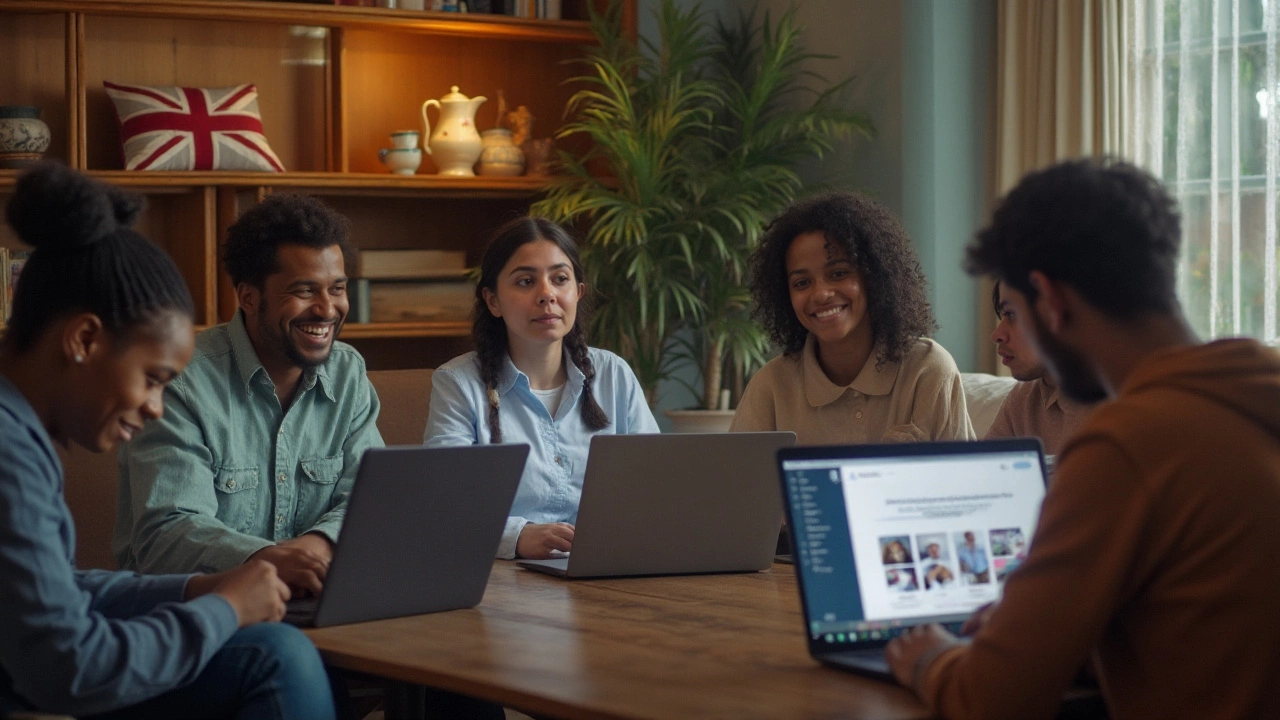Online Classes – Everything You Need to Know
Online classes have become a regular part of school life. Whether you’re doing a short course, a full GCSE, or just a hobby lesson, the basics stay the same: you log in, watch or read, and then do some work. The flexibility is great, but it also means you have to manage your own schedule, stay focused, and pick tools that actually help you learn.
First off, understand what type of class you’re signing up for. Some courses are live, with a teacher on video at a set time, while others are pre‑recorded and let you watch whenever you want. Live lessons give you a chance to ask questions in real time, but you need a reliable internet connection and a quiet space. Pre‑recorded lessons let you pause and rewind, which is perfect for tricky subjects, but you’ll need to plan your own deadlines.
Choosing the Right Platform
There are dozens of platforms out there—Google Classroom, Microsoft Teams, Zoom, Moodle, and specialized sites like Coursera or Udemy. The best choice depends on what your school or course provider uses and how comfortable you are with the interface. Look for a platform that lets you easily share files, ask questions, and get feedback. A simple layout reduces distractions and helps you focus on the lesson.
Don’t forget about the extra tools that make learning smoother. A good headset improves audio, especially in live sessions. A note‑taking app like OneNote or Evernote lets you keep all your class notes in one place. If you need to collaborate on group work, tools like Google Docs or Padlet let everyone edit together in real time.
Tips to Stay on Track
Staying motivated is the biggest challenge for most students. Treat your online class like a regular class: set a specific start time, dress for success, and have a dedicated workspace. Break your study time into chunks—25 minutes of focused work followed by a 5‑minute break works well for many people.
Active participation helps the material stick. Instead of just watching a video, pause and write a quick summary, answer a practice question, or explain the concept out loud to yourself. If the class offers discussion boards, jump in with a comment or a question—you’ll remember the topic better and the teacher sees you’re engaged.
Keep an eye on deadlines by using a simple calendar or a task app. Set reminders a day before an assignment is due, so you’re never caught off guard. If you fall behind, reach out to the teacher early; most are happy to give a quick tip or an extension if you explain the situation.
Finally, remember that online learning isn’t a solo adventure. Form study groups with classmates, even if you meet over a video call. Explaining concepts to each other reinforces your own understanding and makes the material feel less isolated.
With the right platform, a few practical habits, and a bit of self‑discipline, online classes can be just as effective—and sometimes more enjoyable—than sitting in a traditional classroom. Give these tips a try, and you’ll see your confidence and grades improve quickly.
Why Online School is Better: Top Benefits and Real-Life Advantages of Virtual Learning
Discover why online school is often better than traditional schooling: more flexibility, personalized learning, and real connections. Get practical tips for success.
MoreOnline Learning Pros and Cons: Is Digital Education Helpful or Harmful?
Is online learning really as effective as sitting in a classroom? This article digs into the real-life benefits and drawbacks of digital education, drawing from research, student experiences, and current trends. You'll get relatable tips on making the most of online classes along with the facts, stats, and surprises behind what really works in e-learning. Dive in for a down-to-earth guide you can actually use, whether you're skeptical or all-in on remote study.
MoreExploring the Perks of Online Classes
Online classes have revolutionized the way we approach education, offering flexibility and convenience for learners worldwide. They allow students to learn at their own pace, access diverse resources, and balance their studies with personal commitments. With the rise of technology, online education has become more interactive and engaging. This article delves into the various advantages of online classes, providing insights and tips for maximizing their potential.
MoreExploring the Limitations of Online Learning: A Closer Look
Online classes have revolutionized education by providing flexibility and accessibility, but they are not without their downsides. This article delves into one significant downside of online learning - the lack of personal interaction and its impact on students' educational experiences. It discusses how this absence can affect social skills, learning motivation, and sense of community. The piece also offers practical tips for overcoming these challenges effectively.
More



